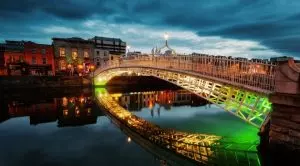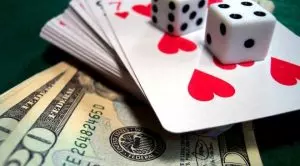 The number of Irish people who deal with problem gambling is increasing every day, but unfortunately, the exact number remains unknown for the time being. As Casino Guardian previously reported, the fact that there is not enough official data on the matter is not of much of a help.
The number of Irish people who deal with problem gambling is increasing every day, but unfortunately, the exact number remains unknown for the time being. As Casino Guardian previously reported, the fact that there is not enough official data on the matter is not of much of a help.
In 2017, experts from H2 Gambling Capital reported that Ireland has third highest gambling losses on a global scale per capita, with local residents spending the shocking amount of €2.2 billion, which is about €470 per capita, on an annual basis. As revealed by the study, there are many problem gamblers who lose a massive amount of money every year in Ireland.
According to data of Ireland’s Health Service Executive (HSE), only 800 got professional treatment for a gambling addiction over the last three years. However, their actual number remains unknown. Problem Gambling Ireland, however, an organisation which is focused on tackling the possible harm inflicted by gambling, has pointed out that they had 100,000 unique visitors to their online site during the last three years alone.
What problem gambling experts are unanimous about is the fact that local regulatory authorities must take the necessary action in order to tackle the problem. Still, they have to first make sure they have enough information about the actual scale of the issue.
Gambling Addiction Rates on the Rise for Several Years
 As explained by specialists, problem gambling is a health issue because of which the individual affected feels a constant urge to gamble, in spite of the fact they wish to stop or the possible negative effect it could have on their life.
As explained by specialists, problem gambling is a health issue because of which the individual affected feels a constant urge to gamble, in spite of the fact they wish to stop or the possible negative effect it could have on their life.
Louise O’Reilly, a member of the Irish Sinn Féin party and a Teachta Dála for the Dublin Fingal constituency, has explained that the gambling crisis in Ireland should not be ignored any more.
She reminded that gambling advertising available on TV at the time of live football matches, with odds about different bets being displayed during live events. Ms O’Reilly further noted that the local football league has a gambling operator as a sponsor, and the main matches take place in a stadium which had also been named after a gambling brand, and the two teams are also sponsored by a gambling operator.
Ms O’Reilly also confirmed that the authorities do not have the exact data regarding the number of problem gamblers in the country because the Irish Government still refuses to commission a survey that would provide the watchdog with the chance to get more information on the matter.
She explained that such a survey was carried out for Northern Ireland in 2017, with the results showing that problem gambling rate in the region was 2.3% at the time, which is about five times bigger than the rest of England. According to Ms O’Reilly, if they were to use the figures for the South, there are probably about 100,000 gambling addicts in Ireland for the time being. Still, a special and in-depth survey is needed in order for the regulatory authorities to get information which is more up to date.
Irish Government Faces Criticism Due to Lack of Action
 Both the Irish Government and the local gambling regulators have been criticised because of their lack of action on the matter, with experts calling the competent authorities to finally do something about that. Ms O’Reilly also confirmed that stiffer regulation is urgently needed for the country’s gambling sector, saying that the Government should stop turning a blind eye on the problem.
Both the Irish Government and the local gambling regulators have been criticised because of their lack of action on the matter, with experts calling the competent authorities to finally do something about that. Ms O’Reilly also confirmed that stiffer regulation is urgently needed for the country’s gambling sector, saying that the Government should stop turning a blind eye on the problem.
Getting access to gambling services has been very easy in the last few years, considering the large variety of gambling sites online which are only a few clicks away. In combination with extensive marketing, gambling is being made look normal to people of all ages, with local people becoming more inclined to becoming gambling addicts, especially when it comes to young men and teenage boys.
The new Gambling Control Bill is expected to take care of the above-mentioned issues regarding the Irish gambling industry. However, it has made little progress since 2013, despite the fact that the scale of the issue has been on the rise.
- Author


